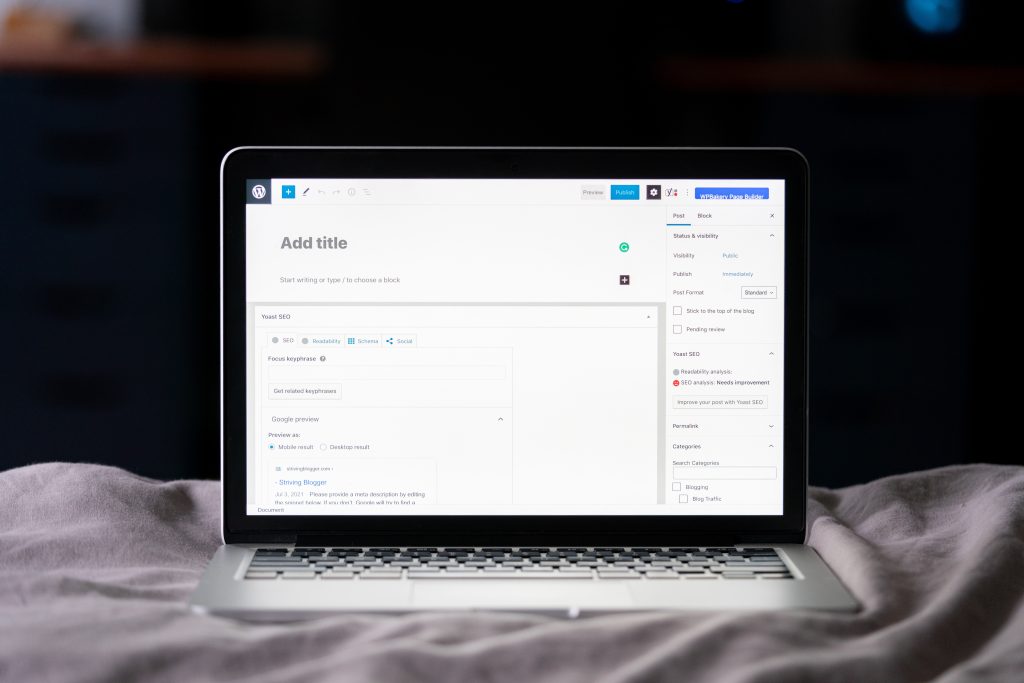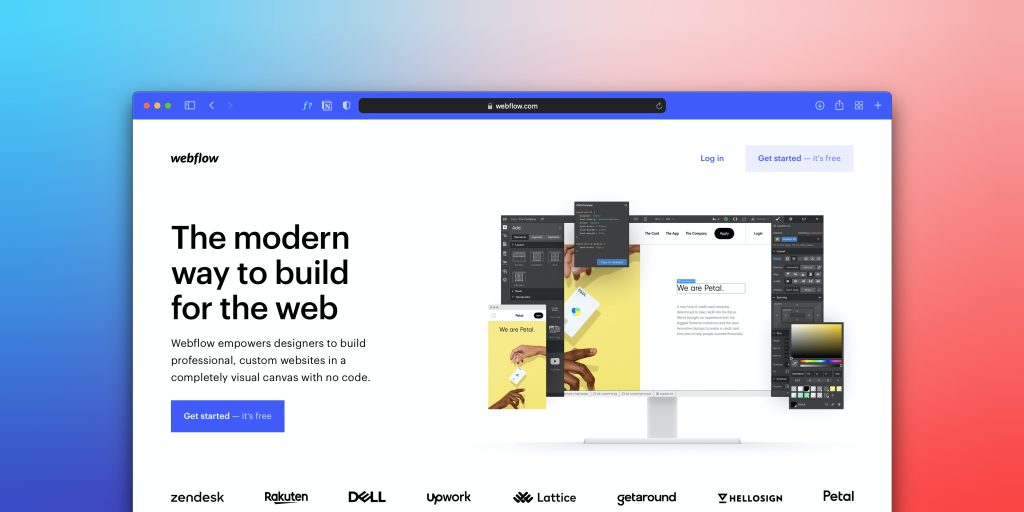Business • Research •
A Blueprint for Small Business Success
Business • Design • Wordpress •
In the ever-evolving landscape of web design and development, choosing the right platform is a critical decision that can profoundly impact the success of your digital endeavors. Among the myriad of options available, two titans stand out: WordPress and Webflow. In this comprehensive comparison, we delve into the strengths of each platform, providing an in-depth analysis that explores customizability, cost-efficiency, and the abundance of resources.
As we embark on this journey of exploration, it’s essential to acknowledge the significance of a platform’s adaptability to diverse needs. WordPress, a venerable and open-source giant, has long been hailed for its unparalleled customizability, cost-effectiveness, and the vast ecosystem of resources nurtured by a thriving community. On the other end of the spectrum, Webflow, a modern design-centric solution, promises an integrated experience, visually intuitive design capabilities, and a streamlined approach to hosting.
Join us as we navigate through the intricacies of these two web development powerhouses, unraveling their strengths, and helping you make an informed decision based on your project’s unique requirements. Whether you’re a seasoned developer, a small business owner, or an aspiring designer, understanding the merits of WordPress and Webflow will empower you to chart a course that aligns seamlessly with your goals in the digital realm.

1. Extensive Themes and Plugins: WordPress boasts a vast ecosystem of themes and plugins, allowing users to customize their websites extensively. The WordPress community has developed a myriad of options, catering to various industries and design preferences. Whether you’re a novice or an experienced developer, you can find or create themes that align with your vision.
2. Open Source and Flexibility: As an open-source platform, WordPress provides unparalleled flexibility. Developers can access and modify the source code to meet specific requirements. This flexibility makes WordPress suitable for a wide range of websites, from simple blogs to complex e-commerce platforms.
3. Full Control Over Hosting: With WordPress, users have the freedom to choose their hosting provider, giving them full control over their website’s performance, security, and scalability. This flexibility is crucial for businesses with specific hosting needs or those looking to optimize their website’s speed.
1. Affordable Hosting Options: WordPress offers a plethora of hosting options, ranging from shared hosting for small websites to dedicated servers for large enterprises. This diversity allows users to find a hosting plan that suits their budget and performance requirements.
2. Free Core Software: The core WordPress software is free, eliminating the need for initial software expenses. This is especially beneficial for small businesses and individuals looking to establish an online presence without significant upfront costs.
3. Abundance of Free Themes and Plugins: The WordPress repository is filled with free themes and plugins, enabling users to enhance their website’s functionality without breaking the bank. While premium options exist, the availability of quality free resources is a significant cost-saving advantage.
1. Extensive Community Support: WordPress has a massive and active community of developers, designers, and users. This community support is invaluable for troubleshooting issues, sharing best practices, and staying updated on the latest trends and technologies.
2. Comprehensive Documentation: WordPress offers extensive documentation, tutorials, and forums. Whether you’re a beginner seeking guidance or an advanced user looking for in-depth information, WordPress resources are readily available.
3. Diverse Talent Pool: Due to its widespread adoption, there is a vast pool of WordPress developers and designers. Finding skilled professionals for custom development or support is relatively easy, contributing to the platform’s sustainability.

1. Visual Design Interface: Webflow stands out for its intuitive and visually-oriented design interface. Users can design websites in a way that closely resembles the final product, which is advantageous for those who prioritize visual design and want to see immediate results.
2. Animation Capabilities: Webflow offers advanced animation features that allow for the creation of visually stunning and interactive websites without extensive coding. This is especially appealing for designers focused on delivering a captivating user experience.
3. All-in-One Platform: Unlike WordPress, Webflow integrates hosting, design, and CMS in a single platform. This streamlines the development process and may be preferable for those who want an all-in-one solution without managing separate components.
1. Transparent Pricing Model: Webflow’s pricing model is straightforward, providing clear plans based on usage. This transparency can be advantageous for users who prefer a predictable cost structure without the need to manage separate hosting expenses.
2. Integrated Hosting: Webflow’s integrated hosting simplifies the hosting process, eliminating the need to research and select a separate hosting provider. This can be convenient for users who want an integrated solution.
3. Responsive Design Out of the Box: Webflow facilitates responsive design without additional plugins or coding. This can save time and resources for users who prioritize mobile responsiveness and want a seamless experience across devices.
1. Webflow University: Webflow offers Webflow University, a comprehensive learning platform with tutorials, courses, and resources. This resource is beneficial for users who prefer structured learning and want to maximize their proficiency with the platform.
2. Designer and Developer Collaboration: Webflow promotes collaboration between designers and developers through its Designer and Developer tools. This can be advantageous for teams where collaboration is a key consideration in the development process.
3. Community Forums and Support: While not as extensive as WordPress, Webflow has an active community and support system. Users can find answers to common questions and share insights with other Webflow enthusiasts.
In conclusion, both WordPress and Webflow offer powerful features, but their strengths lie in different areas. WordPress excels in customizability, cost-efficiency, and the availability of vast resources. Its open-source nature, extensive community support, and flexibility make it a go-to solution for a wide range of websites.
On the other hand, Webflow appeals to those who prioritize a visual design interface, advanced animations, and an integrated platform. Its transparent pricing model and all-in-one approach simplify the development process for users who value a seamless, integrated experience.
Ultimately, the choice between WordPress and Webflow depends on your specific project requirements, development preferences, and long-term goals. For users seeking a robust, versatile, and cost-effective solution with unparalleled customizability, WordPress remains the ultimate choice in the realm of web design and development.
Follow Us On Social Media
Join Our Synmek Newsletter
Unlock a World of Expertise! Elevate your business with our exclusive content delivered straight to your inbox. From marketing guides to design tips, we've got it all just for you. Ready to boost your digital presence? Take the next step and sign up now. Your journey to success starts here!

Business • Research •
A Blueprint for Small Business Success

Business • Design • Research •
Why Your London Business Needs a Professional Website Design Now More Than Ever

Design • SEO •
5 Essential Web Design Tips for London-Based Businesses
Copyright © 2024 Synmek Ltd. Reg. 15289004 | Privacy Policy | Bespoke Website Designer & Developer in London